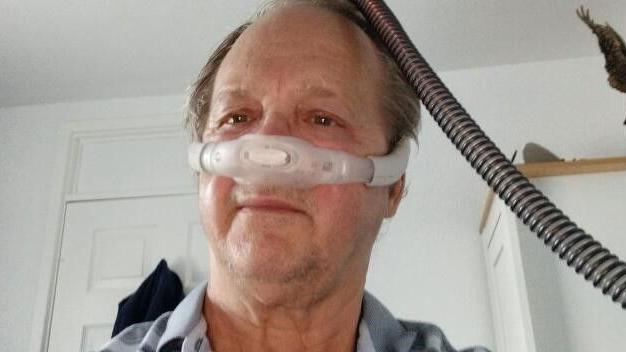Can a night in a laboratory help me sleep better?
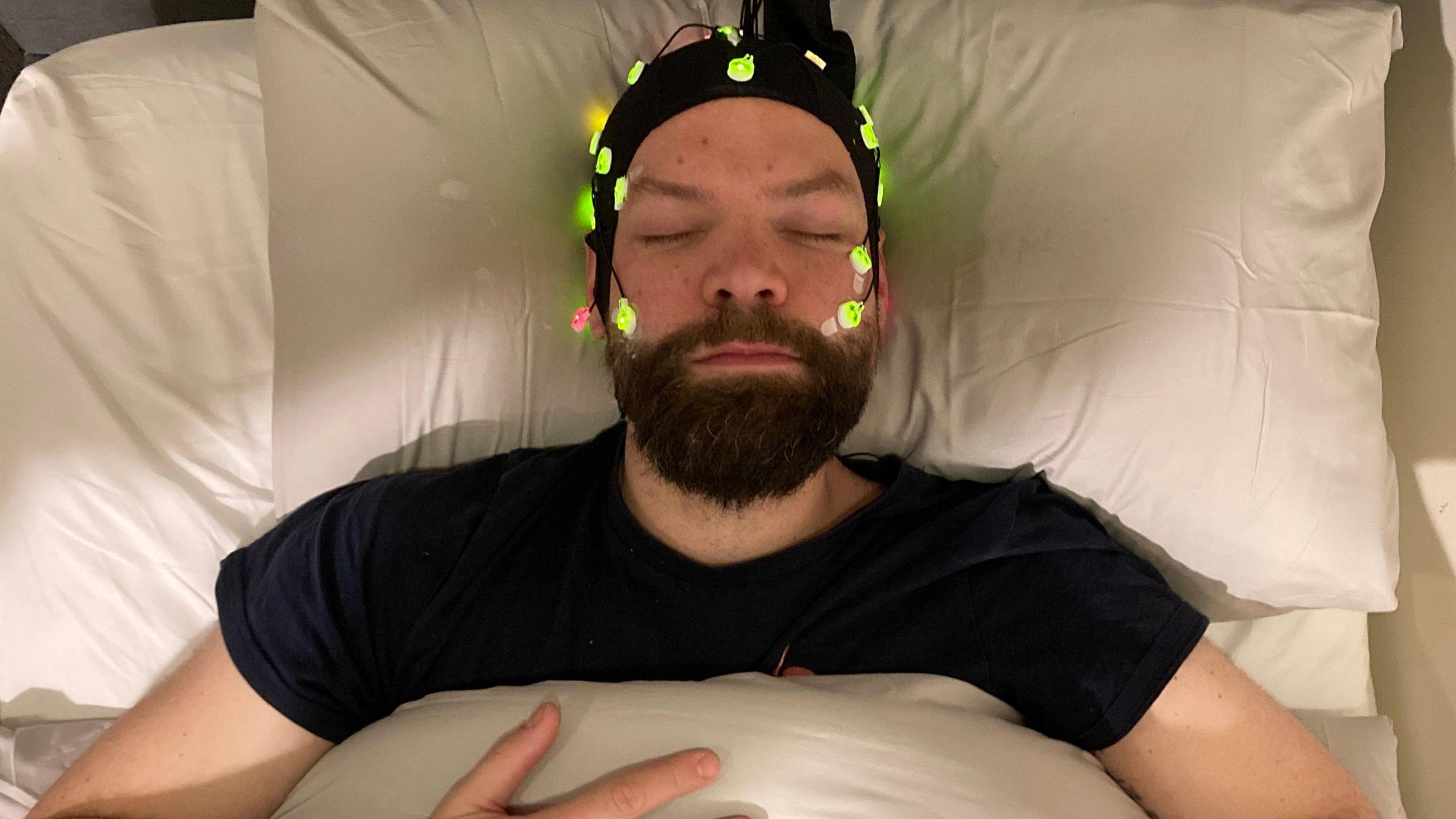
BBC reporter Robby West spent the night at the University of East Anglia's Sleep and Brain Research Unit
- Published
Do you get enough sleep? As a new parent, I don't think I do, and conversations about the subject dominate my life.
At the University of East Anglia (UEA) in Norwich, scientists are conducting groundbreaking studies into the importance of sleep and its broader impact on health.
So when the chance to stay at their cutting-edge sleep laboratory came up, I was eager to take part.
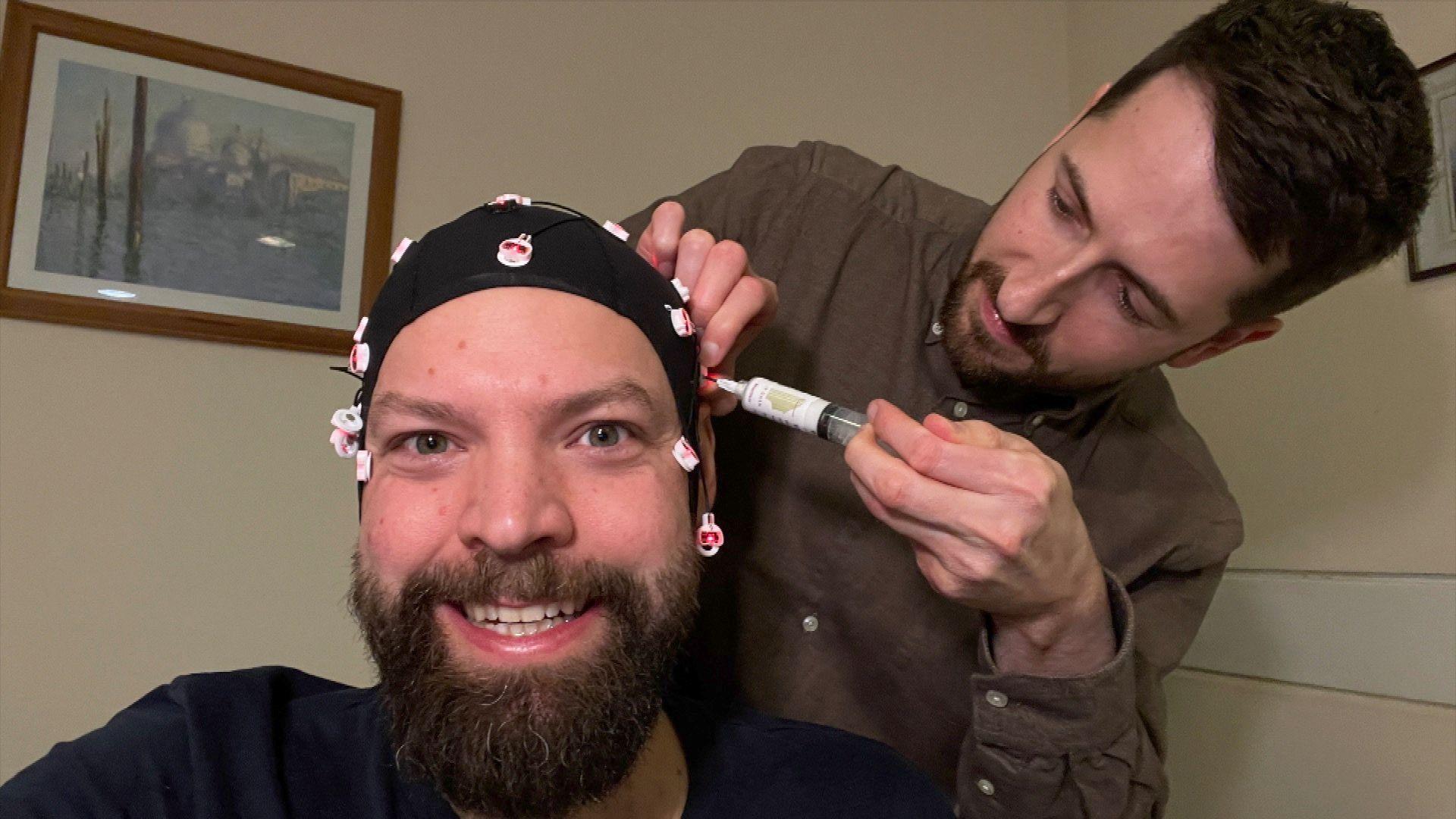
Conductive gel is injected around the sensors by Dr Marcus Harrington to help monitor Robby's brainwaves
Nearly 20% of people in the UK are not getting enough sleep, according to the charity Mental Health UK.
I'm about to find out if I'm one of them.
Scientists at the UEA's Sleep and Brain Research Unit, external are looking at the role of sleep in ageing, its impact on balance control and whether there is a link between gut health and sleep quality.
Tonight they are going to use state-of-the-art technology to monitor my brain while I sleep.
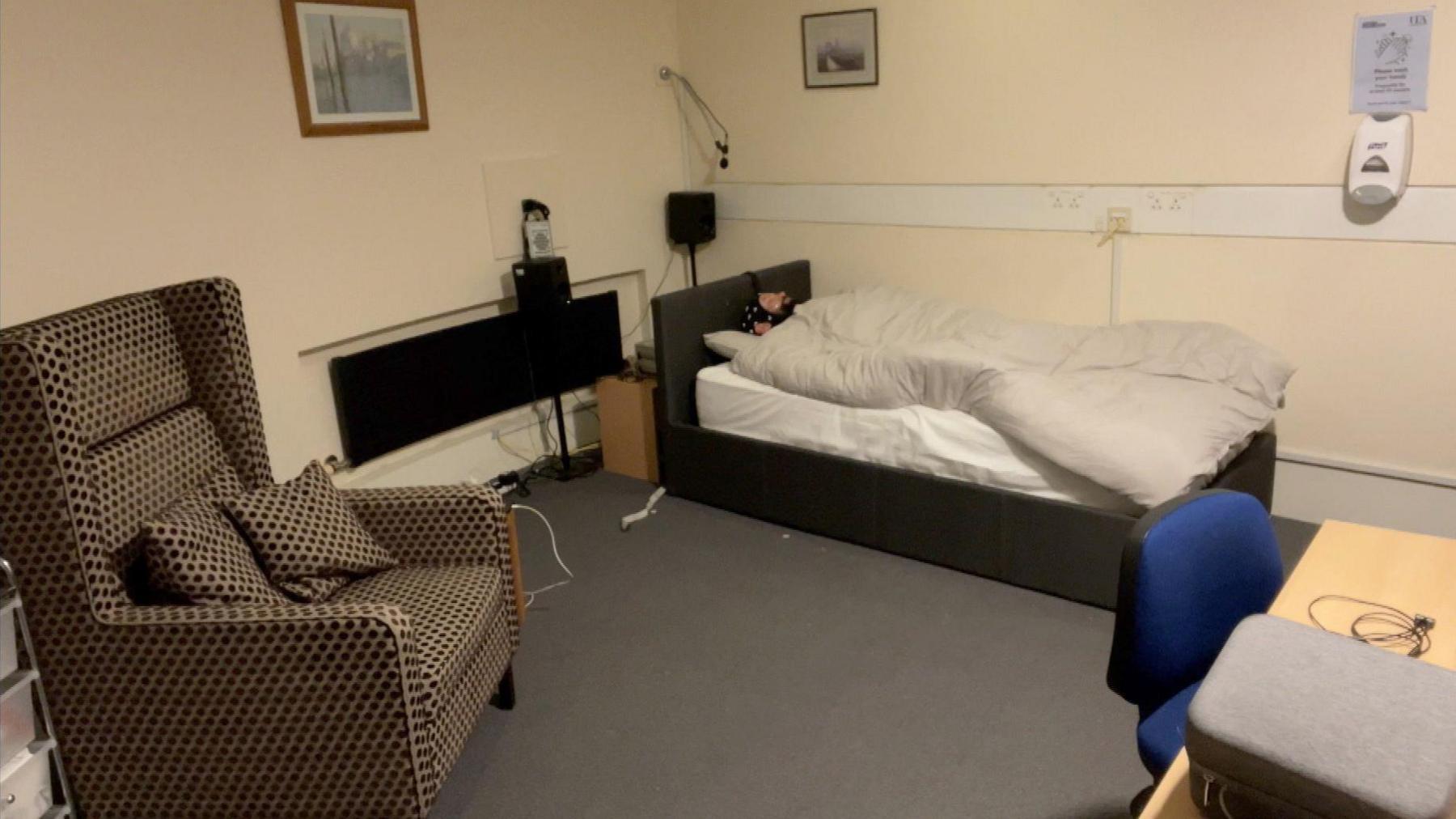
Scientists from different UEA departments use the unit to study the impact of sleep on bodily functions
I enter a room on the Norwich campus that looks more like one from a chain hotel rather than a high-tech laboratory.
As Dr Marcus Harrington, a lecturer in psychology, gets me ready for my night, he tells me he will be sleeping on a camp bed while monitoring me from the room next door.
He then pulls a tight-fitting cap over my head. It has about 20 sensors to monitor my sleep.
Initially, it feels uncomfortable, making me question whether I will be able to sleep with it on, but I quickly forget I am wearing it.
As I fall asleep just after 23:00, Dr Harrington can see the electrical activity inside my head from the room next door.
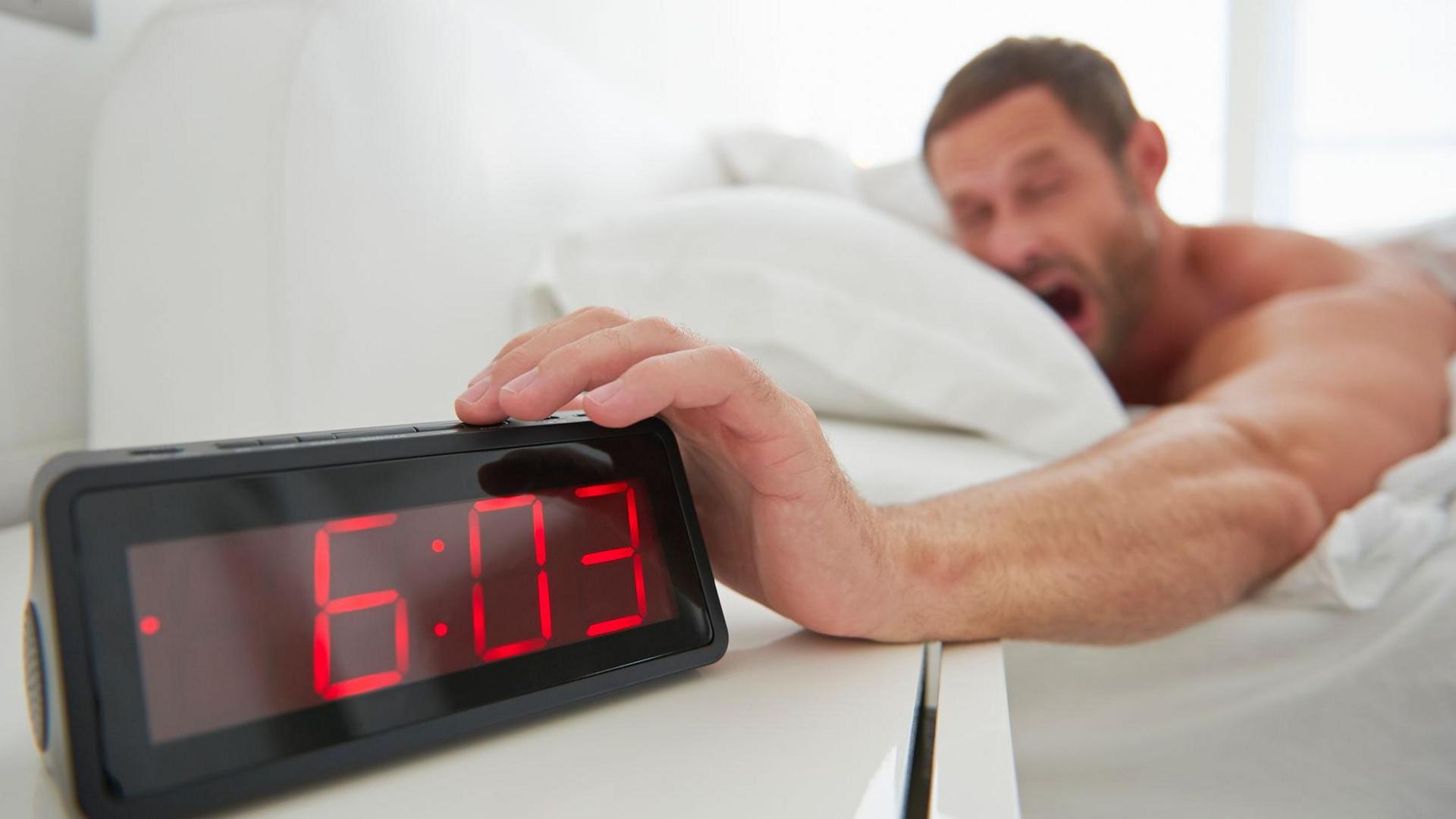
Nearly 20% of people are not getting enough sleep, according to the charity Mental Health UK
Despite the unfamiliar surroundings and the unconventional headwear, I sleep well. I feel like I have slept through the night.
My watch alarm wakes me at 07:00. Usually, I am woken even earlier by my 16-month-old daughter's calls.
Dr Harrington shows me the data he gathered, pointing to a screen showing 30 seconds of my brain activity.
By looking at all those "snapshots", he can get an insight into my sleep.
The data shows how long it took me to fall asleep, how long I spent in different sleep stages and how many times I woke up during the night.
"Your results suggest you are not getting as much sleep as you should be. That is demonstrated by how quickly you went into a deep sleep," he says.
Having a daughter who doesn't sleep through the night, this finding does not surprise me.
After we have finished looking at the data, Dr Harrington tells me about the benefits of having the sleep unit.
"We know that almost every mental health problem is associated with poor sleep," he says.
Currently, scientists "don't know exactly why poor sleep seems to increase vulnerability to things like depression, anxiety, and post-traumatic stress disorder," he says.
The lab's findings will help scientists understand and treat mental health problems in the future, he adds.
How to get a good night's sleep
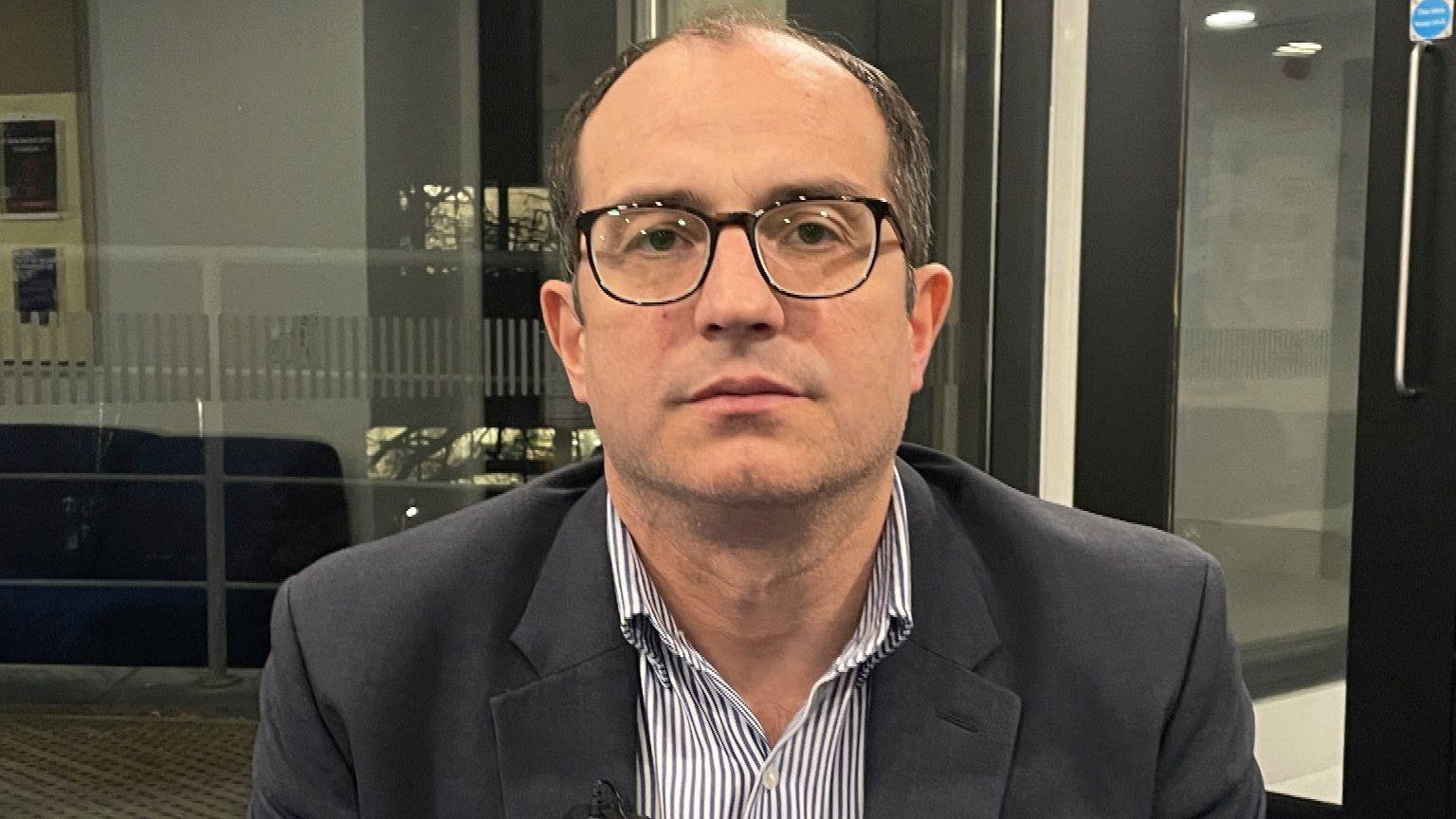
Dr Lazar has spent two decades looking into human sleep and circadian rhythmicity in brain health
The unit is run by Dr Alpar Lazar, who has been researching sleep for more than two decades.
"Poor sleep can have really negative effects on our physical and mental health," he says.
Studies suggest sleep may "help to prevent certain conditions that target the brain" as people get older, he adds.
Here are his top five tips for a better night's sleep:
1. Cut down on caffeine
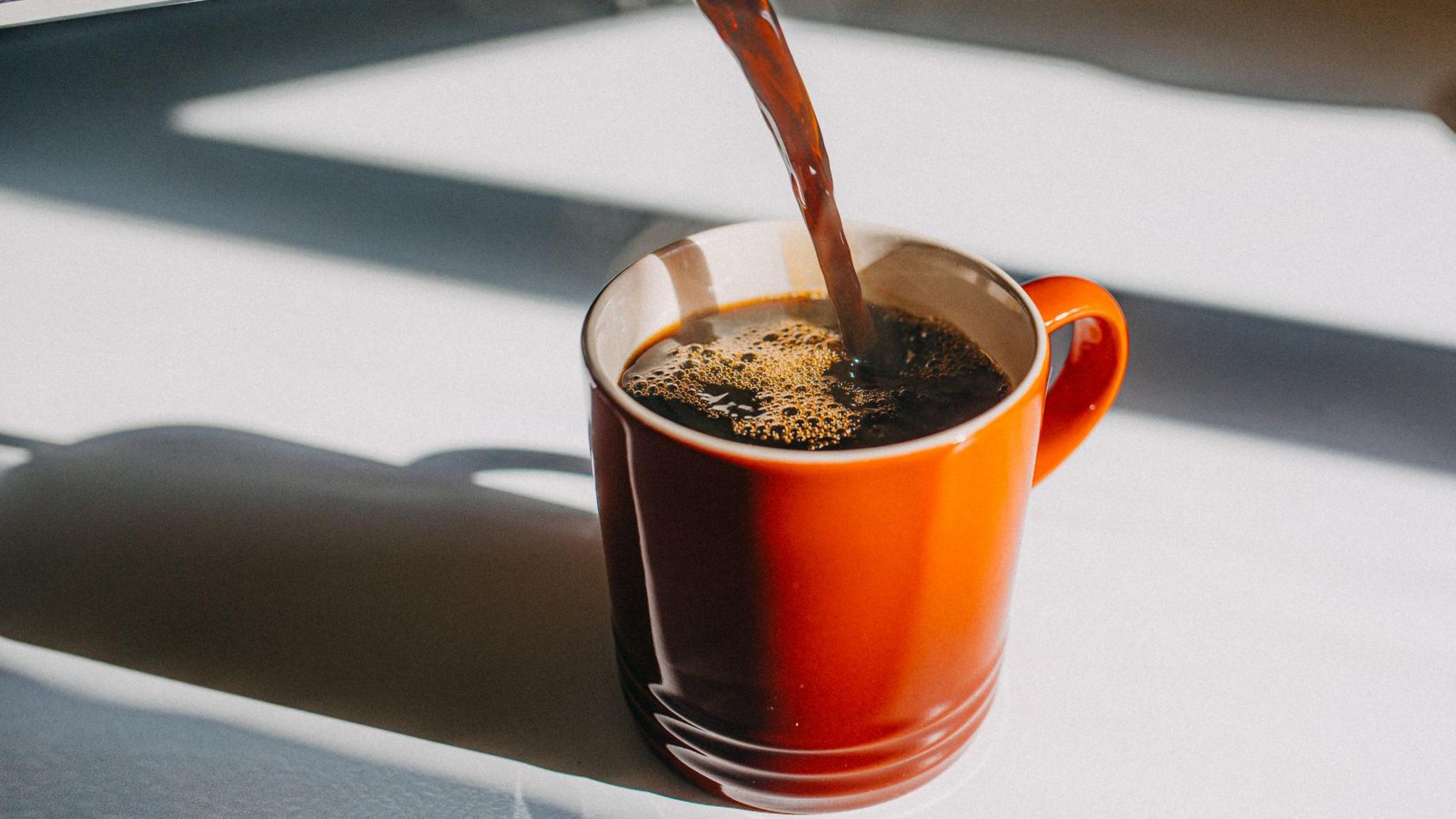
Coffee and energy drinks might be a way that lots of people start their day, but they can cause issues when you sleep, he says.
While caffeine may help by "reducing sleep inertia", even when these drinks are consumed in the morning, they can still affect you in the evening, he adds.
Dr Lazar says people should therefore minimise caffeinated beverages "especially in the second part of the day".
A 2017 report by charity Age UK backs up his advice, suggesting people over 50 avoid caffeine after lunchtime to aid sleep.
2. Avoid alcohol
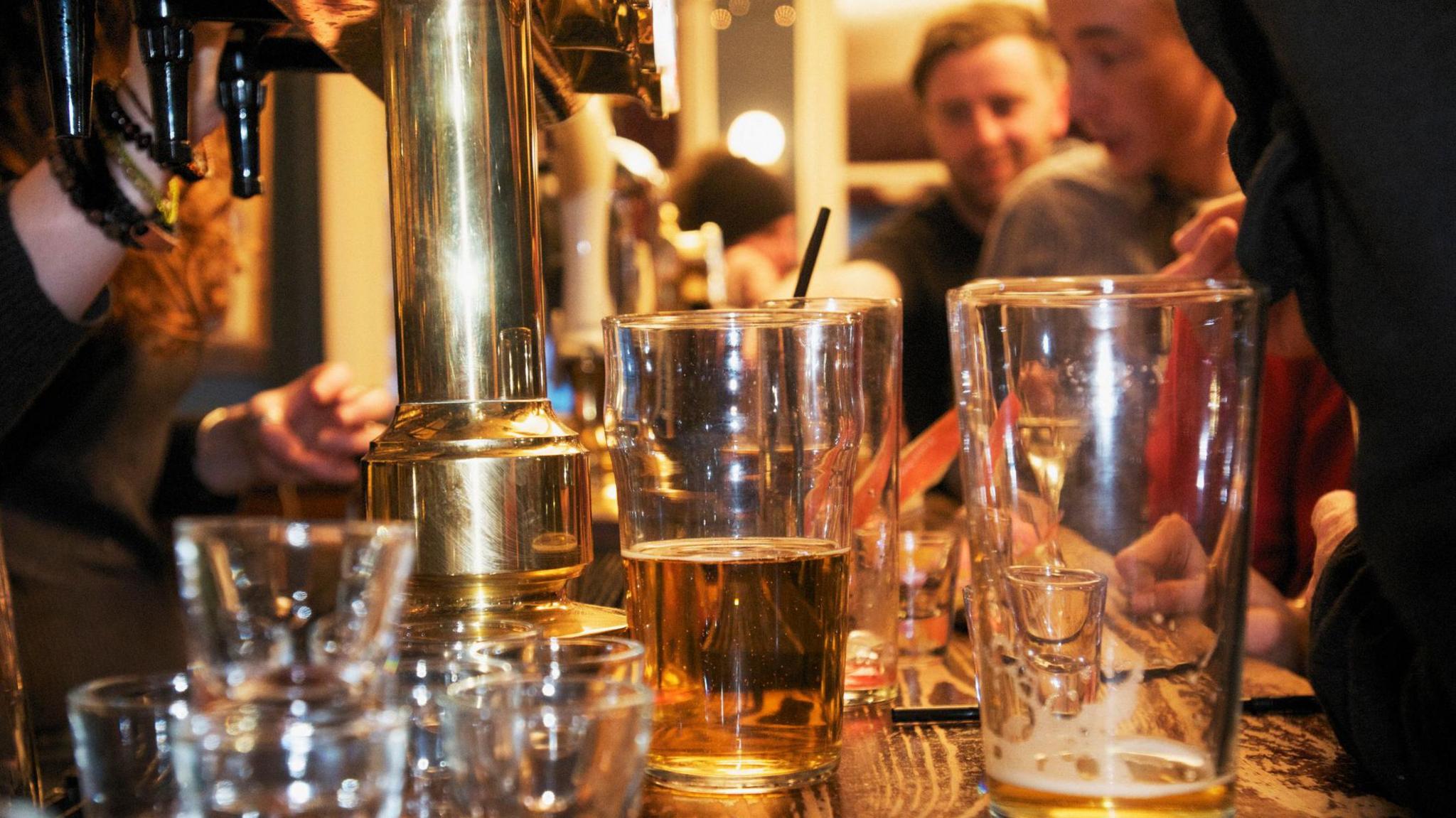
While alcohol can make you feel sleepy due to its sedative effect, it will disrupt your sleep cycle and reduce the quality of your sleep, Dr Lazar says.
Alcohol suppresses a unique phase of sleep, where there is increased brain activity, he explains.
Known as REM (rapid eye movement) sleep, it typically occurs after deep sleep and recurs multiple times throughout the night.
"A large amount [of alcohol] is going to interfere with the sleep-wake balance system," Dr Lazar says.
In 2013, researchers looked at how drinking alcohol could upset our normal sleep cycles.
They found that while a tipple before bedtime may get you off to sleep faster, it can disrupt your night.
3. Reduce light exposure
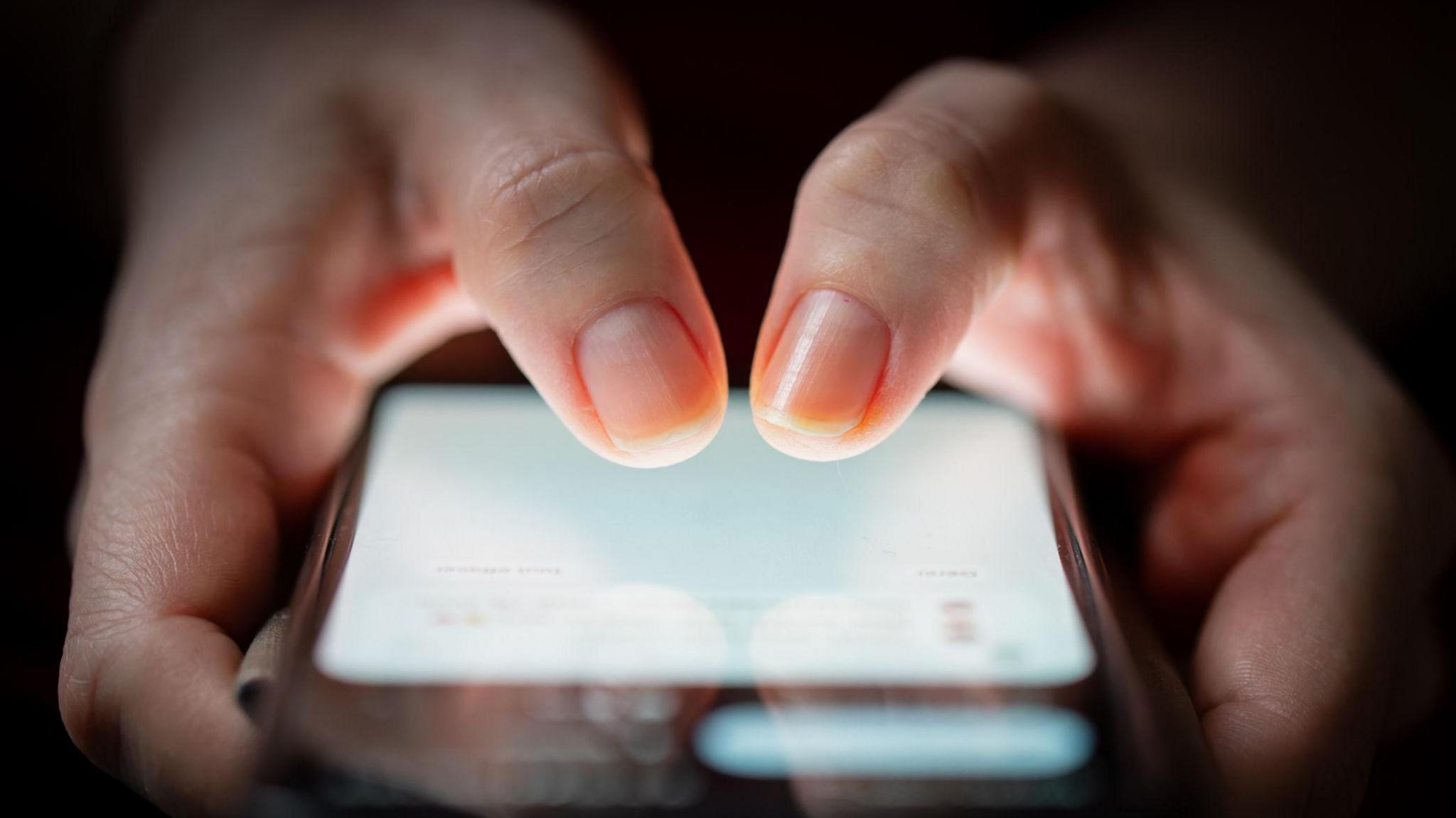
Sleep is controlled through an internal process known as the circadian system that repeats roughly every 24 hours.
Light is one of its strongest timekeepers, Dr Lazar says.
When it is bright, our internal clock feels we should be awake.
Dr Lazar suggests we should avoid bright light during the evening hours, and use filters on phone screens during this time.
If you wake up in the night and need the toilet, use low lights and do not turn your main lights on, he advises.
4. The bed is for sleeping
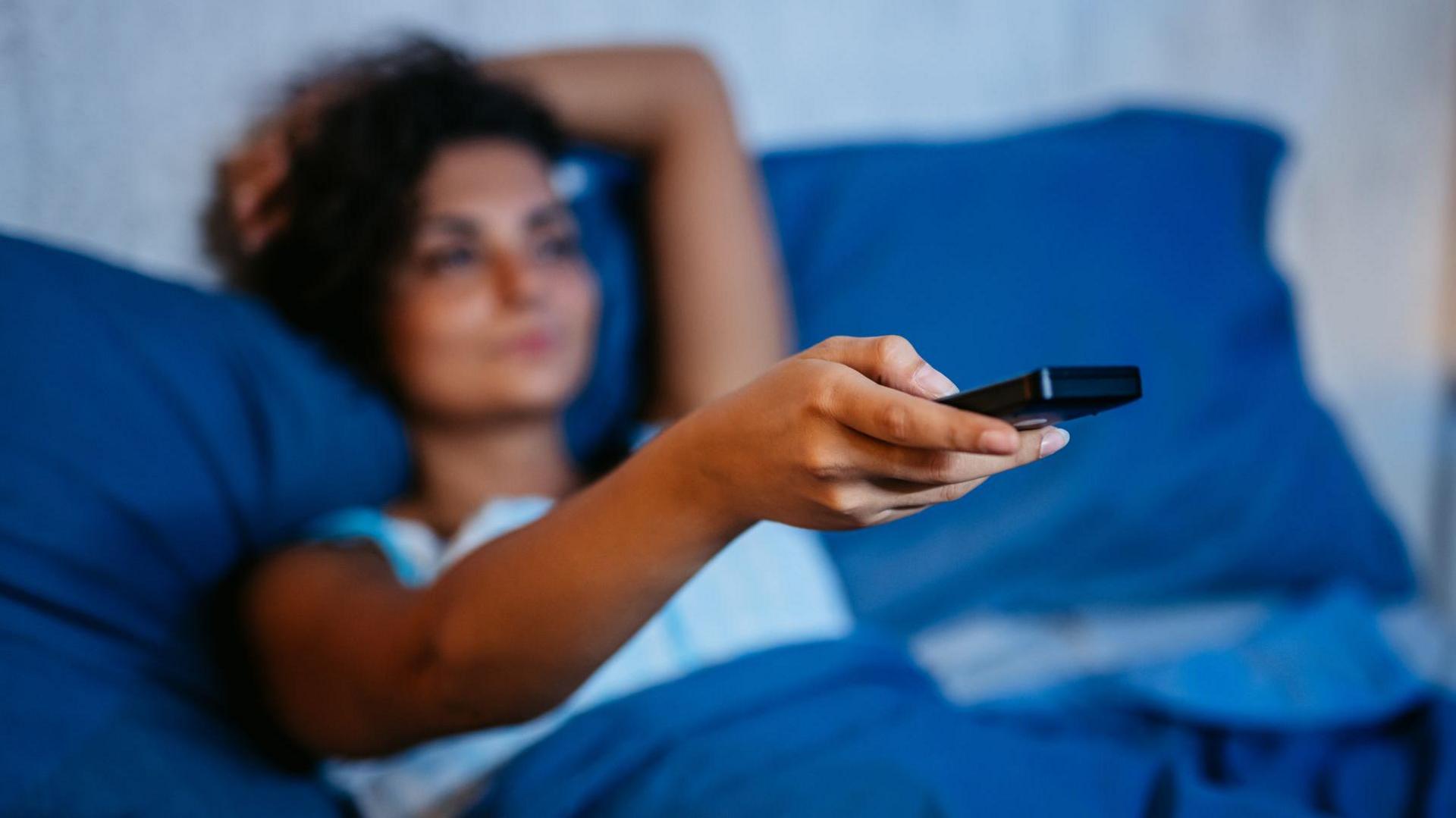
If you are tempted to watch TV or check your emails in bed, don't.
A recent study found people who spent more time looking at a screen in bed were more likely to report insomnia.
Don't think of the bed as a "social area", Dr Lazar says.
Teach the brain that it is for sleeping, so when you get into bed, your body knows it's time to rest.
If you wake in the night, leave the bed and try to return when you feel ready to sleep.
5. Avoid naps

Having a bad night's sleep and then taking a nap may "perpetuate the problem", Dr Lazar says.
If sleep problems become chronic, avoid naps unless necessary for essential tasks such as driving, he adds.
Avoiding naps helps "accumulate sufficient sleep drive" for the night, aiding in falling and staying asleep.
How has the experience changed my habits?
A week on from my night at the sleep unit, I have tried to implement some of the things I learned.
No longer will you get reply emails sent from my bed.
I am making sure my morning coffees remain in the morning, and I am trying to keep the lights off if I pop to the loo.
So far, these tips are starting to help me get a better night's sleep.
While it is still early days, I am already starting to notice a difference.
The length of my sleep has not changed but it feels like the quality has improved, apart from the odd night when my daughter just refuses to go to sleep.
Get in touch
Do you have a story suggestion for Norfolk?
Follow Norfolk news on BBC Sounds, Facebook, external, Instagram, external and X, external.
Related topics
More related stories
- Published1 April
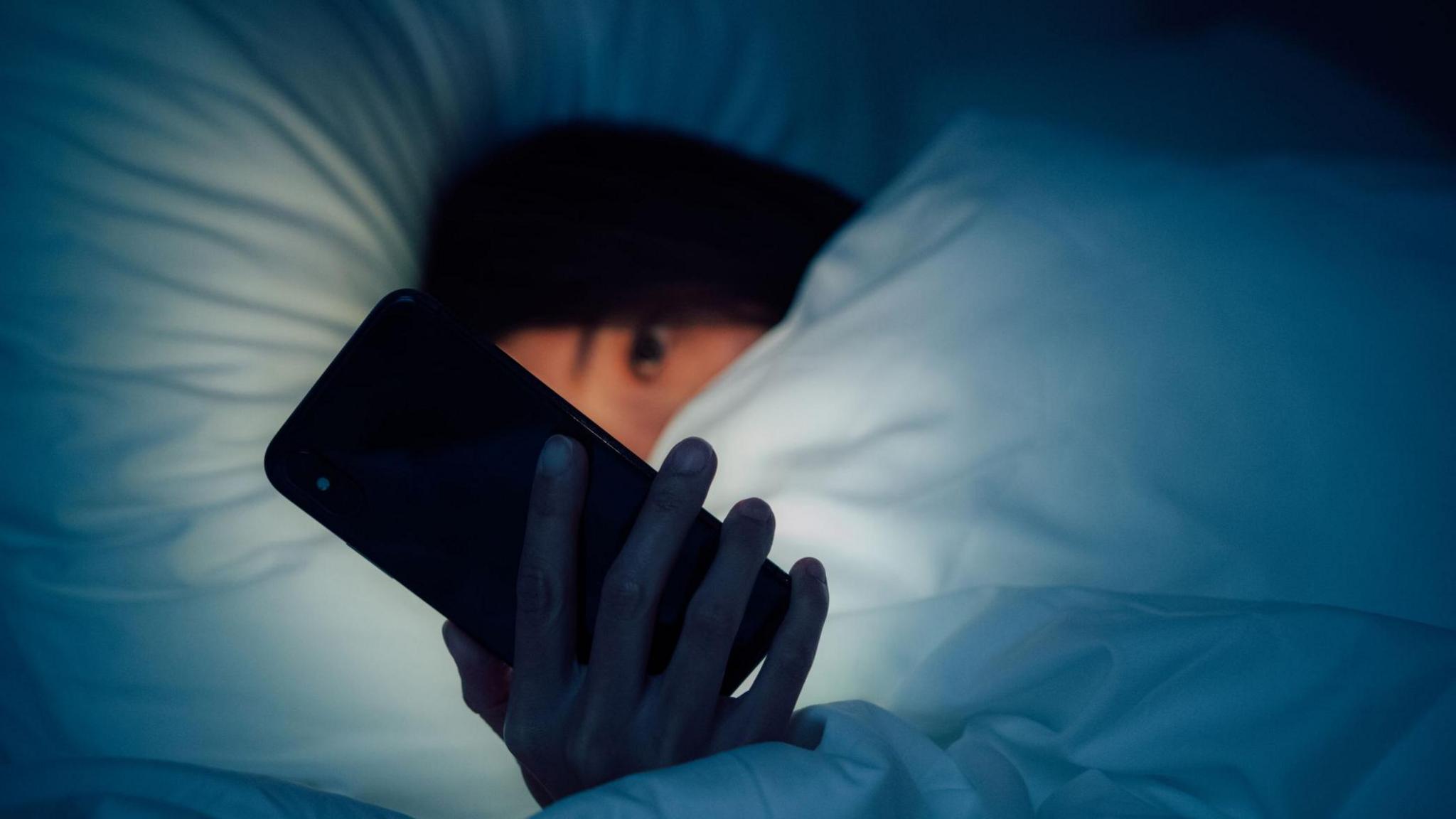
- Published19 March
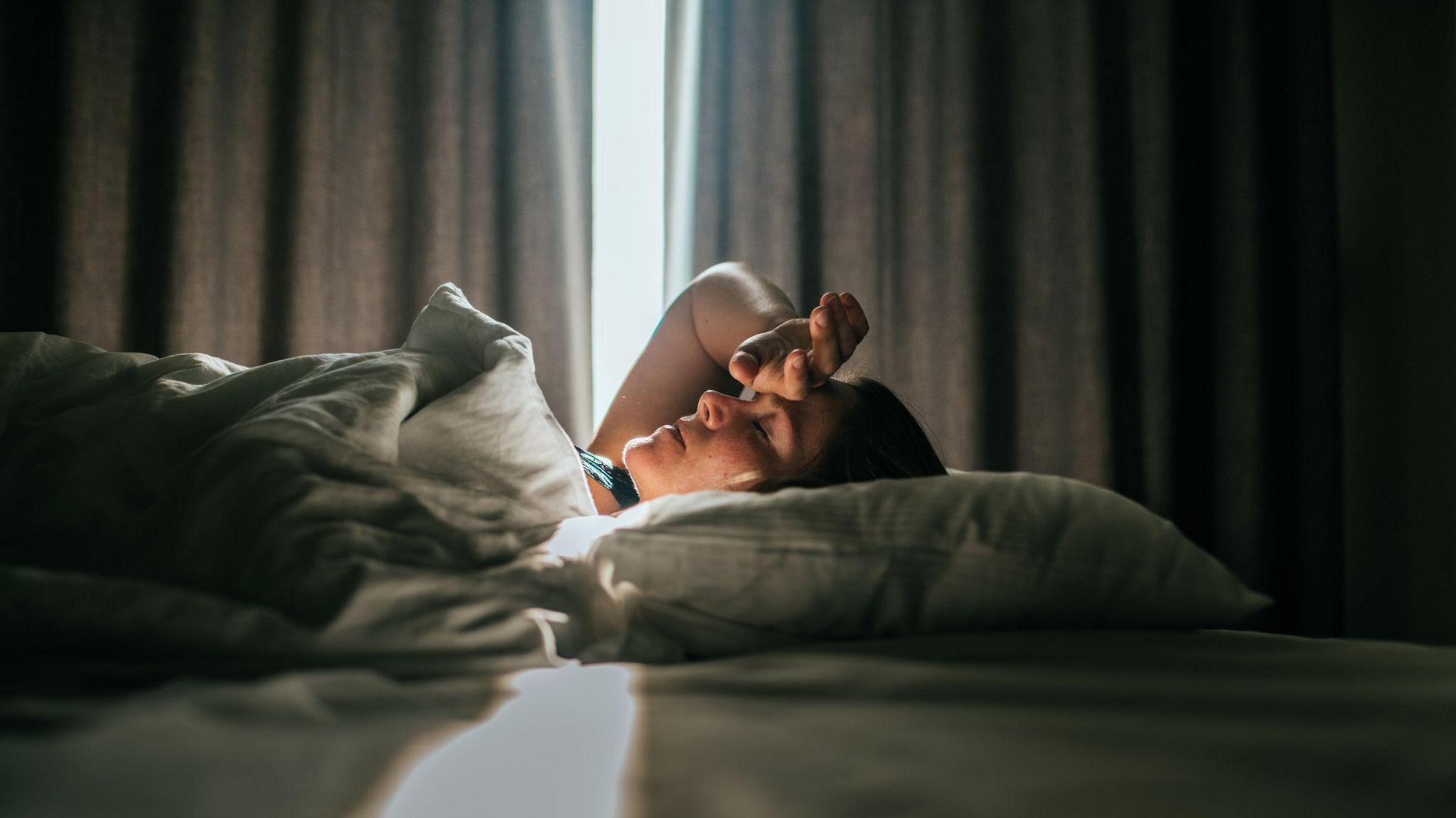
- Published5 October 2024
